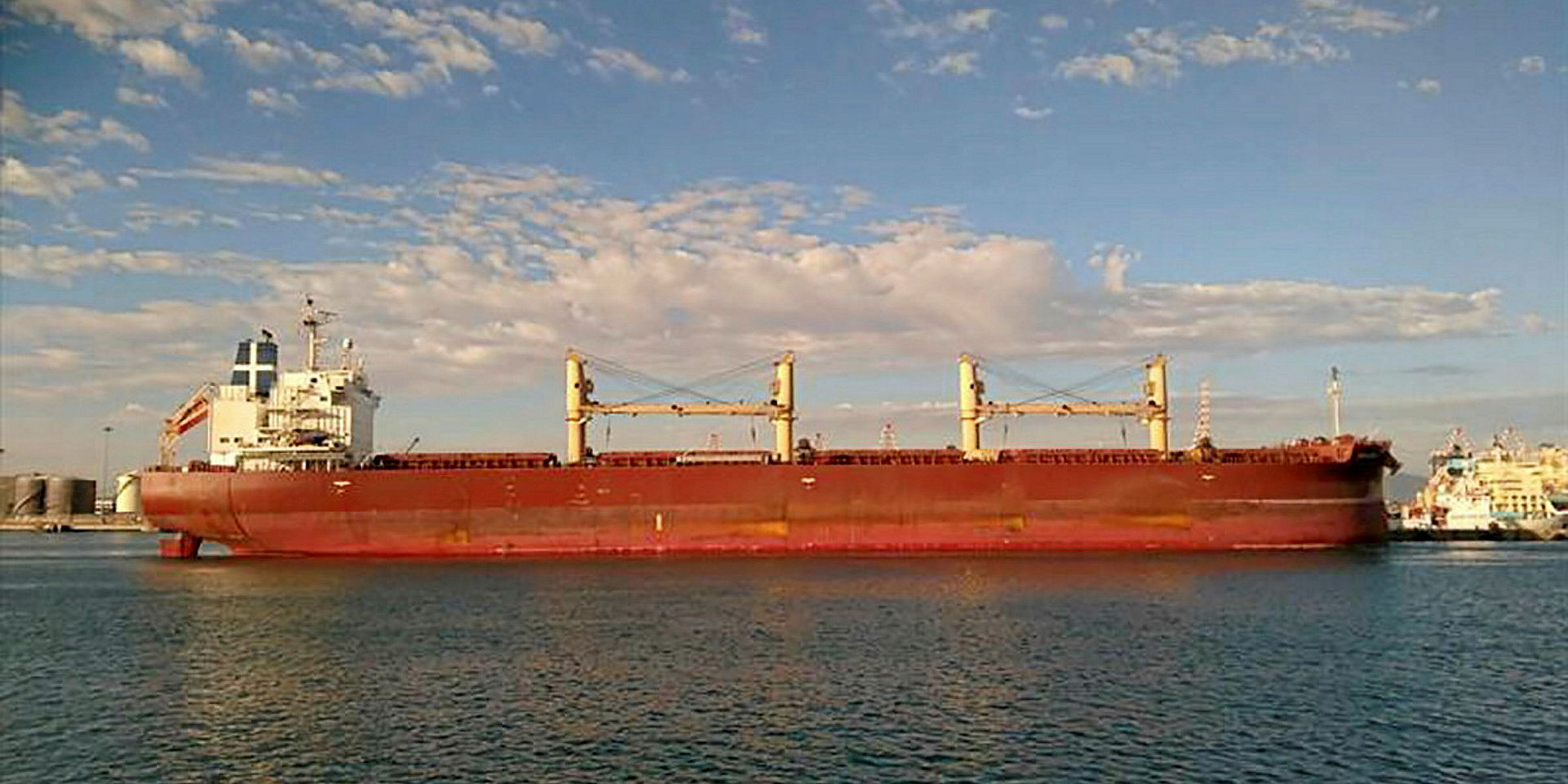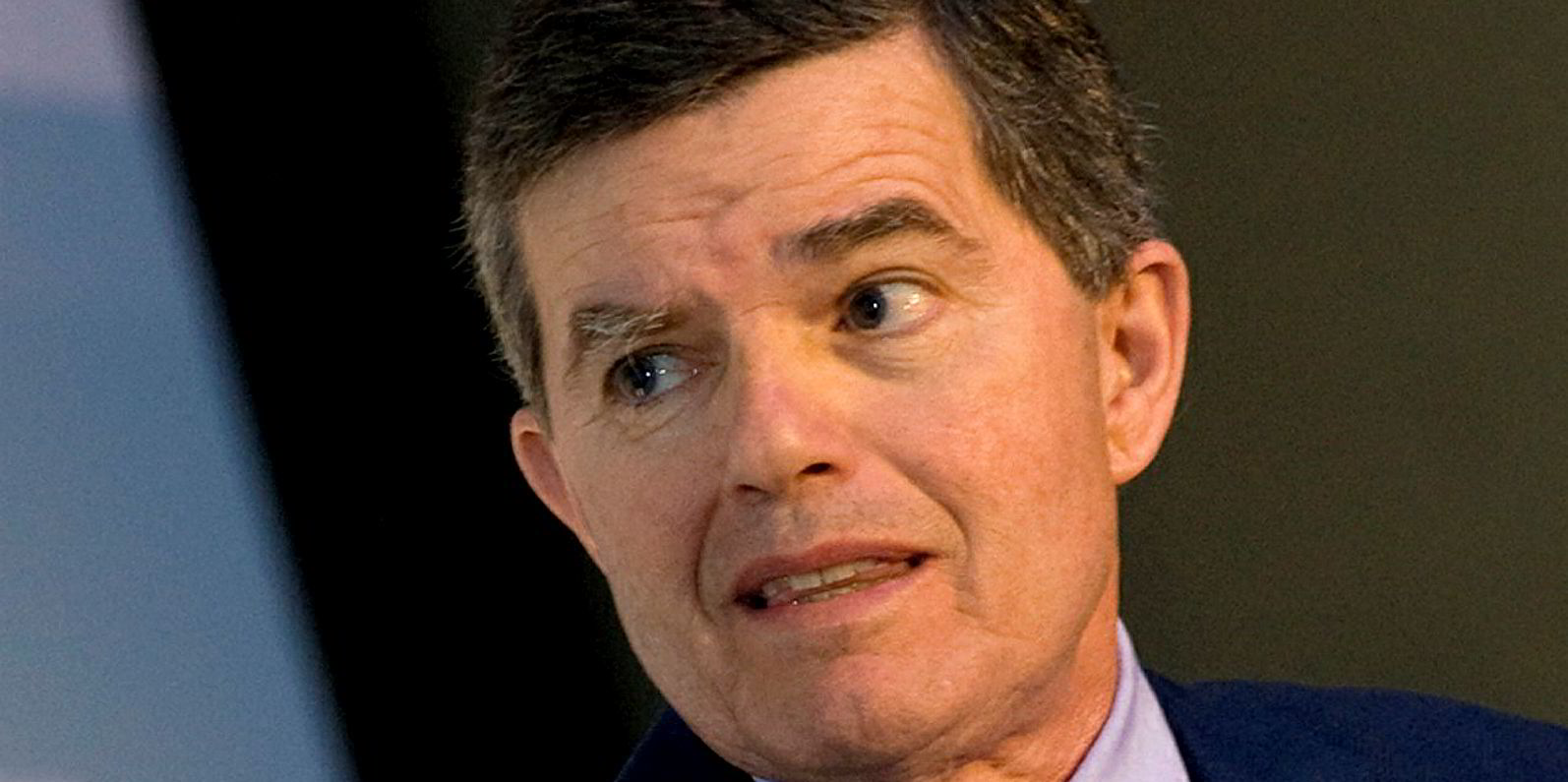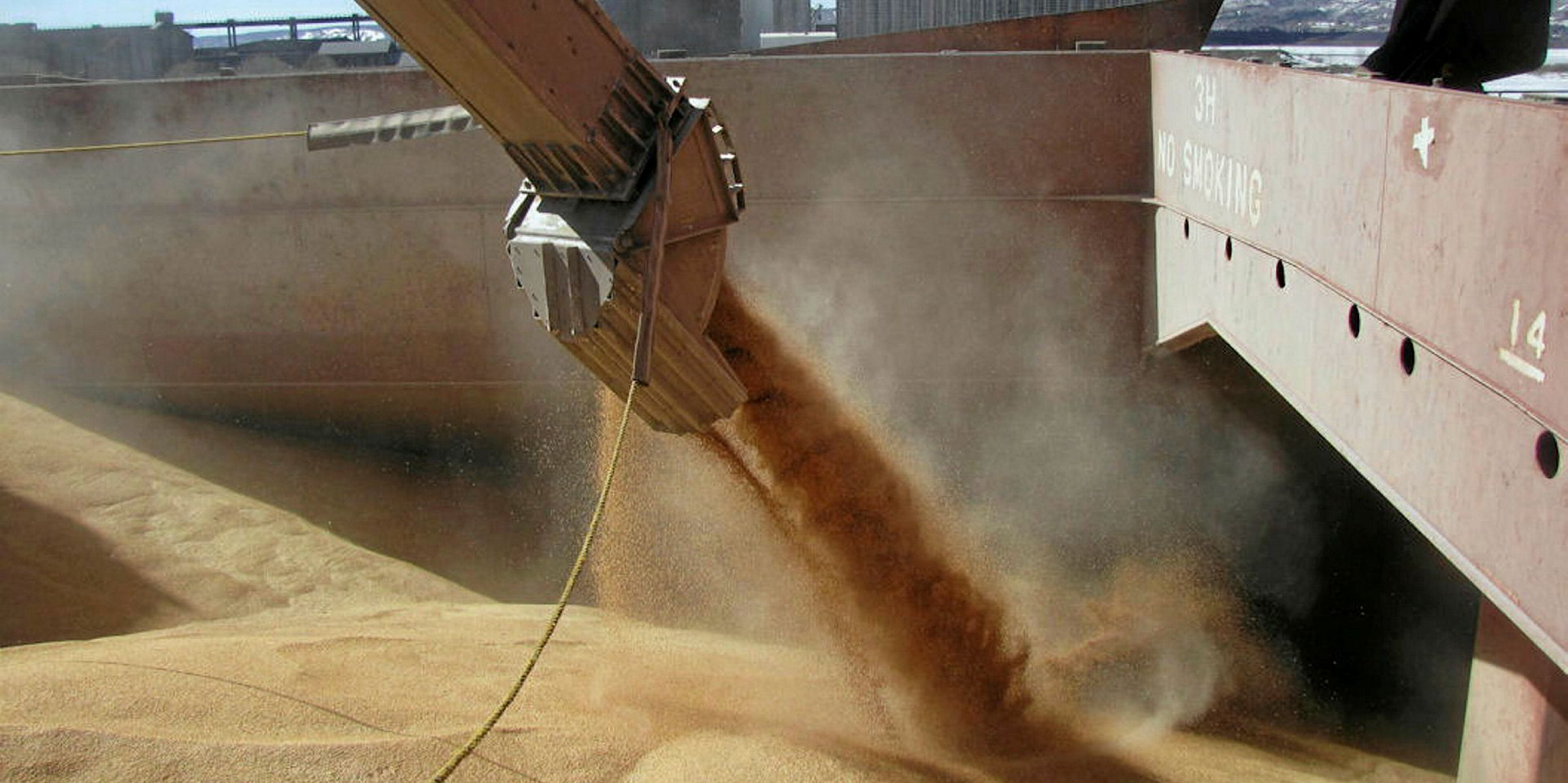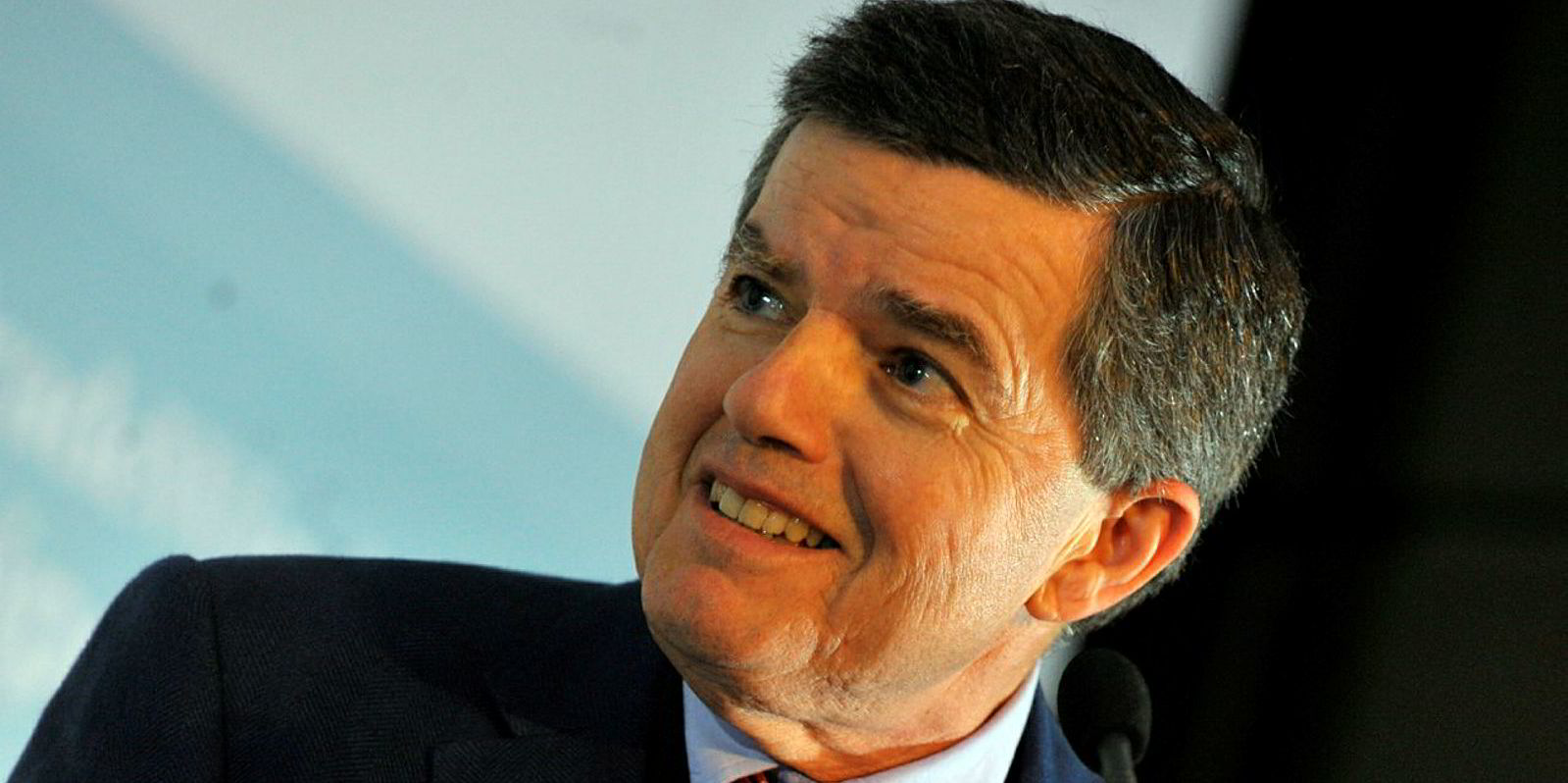Iranian grain importers are struggling with financial obstacles that have left a number of chartered panamaxes at anchor for months with grain and soybean cargoes.
Shipowners in the Iranian grain import trade have had their laden ships idle off the western Iranian port of Bandar Khomeini for up to five months.
Eastern Mediterranean Maritime (Eastmed) — the international shipowner currently most heavily involved in carrying Iranian agricultural imports — has seen ships begin to move since the beginning of last week.
But at least a dozen laden panamaxes and one handysize ship were still at anchor, waiting for their turn to berth, at the time TradeWinds went to press this week.
Shipowner Thanassis Martinos indicated this week in exclusive comments to TradeWinds that the recent timeline of conflict between the US and Iranian governments is unrelated to the bottleneck.
"Our vessels stuck at Bandar Khomeini are on financial hold as the Iranian receivers must have some financial constraint," Martinos said on Monday in an email reply to a TradeWinds enquiry.
'Purely financial'
"However, last week, three of our vessels got clearance to discharge. I think this situation has nothing to do with the death of general [Qassem] Soleimani. It is purely a financial situation."
Panamax and kamsarmax bulkers queued off Bandar Khomeini last week belonged to companies including Cyprus Sea Lines, Greek owners Astra Ship Management, Iason Hellenic Shipping, Target Marine, Iolcos Hellenic Maritime Enterprises, Prosperity Bay Shipping, and Minoa Marine, India's SNP Shipping Services, China's ATL Shipping, and Russia's Linter.
One of the companies, Minoa Marine, appears to specialise in Iranian trading, with five ships employed exclusively in that business during the period since sanctions have resumed.

But Eastmed is the leader. Vessel tracking information shows at least six of Eastmed's 39 bulkers have been frequent callers at Bandar Khomeini in recent months, discharging or at least waiting to discharge mostly South American cargoes.
The 81,900-dwt Sea Commander (built 2018) remained off Bandar Khomeini with a cargo from Belem from 6 September last year to 2 January before getting a berth. Another Eastmed kamsarmax — the 81,600-dwt Panorea (built 2013) — waited from 21 August to 8 January with a Brazilian cargo.
The 60,400-dwt Venezia (built 2017) was parked laden for a full five months. It arrived at the anchorage on 3 August last year from Belem and proceeded to the terminal on 3 January.
Eastmed’s 81,400-dwt Zea (built 2013) and 60,400-dwt Sealady (built 2016) remained at the outer anchorage at the time of publication. A supramax — the 50,300-dwt Karteria (built 2001) — called with Ukrainian cargo just after Christmas and discharged with no significant wait.
AIS data shows the Karteria and another Eastmed supramax — the 58,000-dwt Filia (built 2011) — in ballast in eastern Iran now, at Bandar Abbas.
Risk and reward
Many observers believe that the rewards in Iranian trading correspond to the perceived risk, but Martinos suggested that the premium for legal business is a relatively modest one.
"For Iranian grain business (not sanctioned) there is a certain premium, say 10% over market rate, which is justified due to the difficulties with the P&I club cover should there be an accident," Martinos said.
Several panamax owners and brokers said they avoid Iranian business totally, not only because of any real legal risks but out of worries that ships and companies associated with Iran can run into cash transfer difficulties with US banks, who are likely to err on the side of caution.
But the grain import trade is innocent even by the standards of the US Department of the Treasury’s Office of Foreign Assets Control (Ofac) authorities — unlike trades in Iranian export commodities, including petroleum, gas and iron ore, or trading with entities that the US or the European Union specifically targets.
"All our bulk carriers in Iran carry non-US sanctioned cargoes, ie grains for human consumption," Martinos said. "We preclear such cargoes with Ofac."






